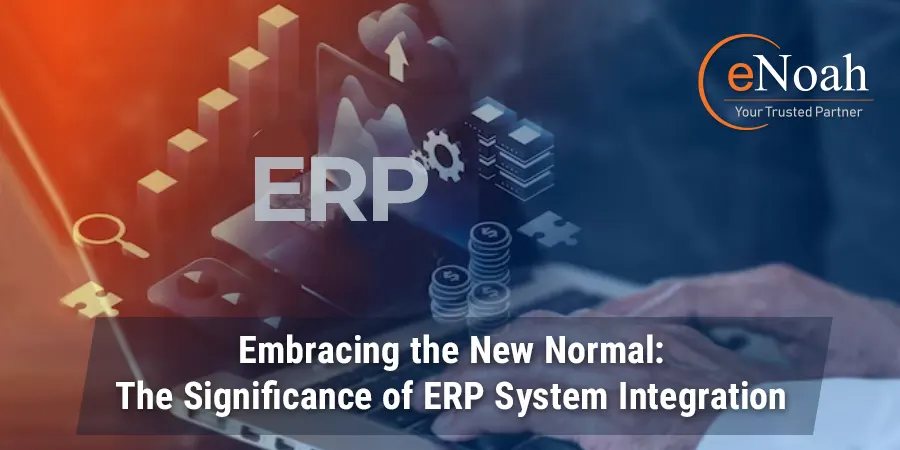
The unprecedented events of recent years have reshaped the global business landscape, emphasizing the importance of adaptability and resilience. Amidst these changes, Enterprise Resource Planning (ERP) system integration has emerged as a pivotal strategy for businesses navigating the “new normal.” This article explores the significance of ERP system integration, particularly in planning for an uncertain future, and highlights the multifaceted benefits it offers to organizations.
In an era characterized by volatility and unpredictability, businesses face the challenge of preparing for an uncertain future. The need for agility and flexibility has become paramount. ERP system integration equips organizations with the tools to adapt and thrive in this dynamic environment.
Integrated ERP systems provide a unified view of critical business data across various departments and functions. Real-time data accessibility empowers decision-makers with accurate insights, facilitating informed and timely decision-making. This visibility enables businesses to pivot quickly in response to changing market conditions or unforeseen challenges.
ERP system integration ensures scalability, allowing businesses to adjust and expand operations seamlessly. As companies grow or encounter fluctuations in demand, an integrated ERP system can accommodate increased data volumes, additional users, or new functionalities. This adaptability is crucial in navigating uncertain economic landscapes and evolving market demands.
The ability to respond swiftly to market shifts or disruptions is a competitive advantage. Integrated ERP systems enable businesses to streamline processes, automate workflows, and implement changes efficiently. This agility ensures a rapid response to market demands, regulatory changes, or unforeseen events, fostering resilience in uncertain times.
The adoption of ERP system integration yields a plethora of benefits that empower organizations to thrive amidst uncertainty:
Integration of disparate systems and processes into a cohesive ERP platform streamlines operations, eliminating redundancies, manual errors, and inefficiencies. This optimization enhances productivity and operational efficiency, enabling businesses to focus on value-added tasks.
An integrated ERP system facilitates seamless collaboration among departments, breaking down silos and promoting cross-functional communication. Teams can share real-time data, collaborate on projects, and make collective decisions, fostering a culture of collaboration within the organization.
A unified ERP system enables a holistic view of customer interactions, allowing businesses to personalize experiences and deliver superior customer service. Integrated systems ensure smooth order processing, inventory management, and timely responses to customer inquiries, thereby enhancing overall customer satisfaction.
By eliminating manual processes and reducing errors, ERP system integration leads to cost savings. It optimizes resource allocation, minimizes excess inventory, and enables better resource planning, contributing to improved financial performance.
In an era characterized by uncertainty and rapid change, the adoption of ERP system integration emerges as a strategic imperative for businesses. It empowers organizations to adapt, innovate, and thrive in the face of unpredictability. The benefits of enhanced data visibility, scalability, agility, streamlined operations, and improved decision-making position businesses to navigate the new normal with resilience and success. By embracing ERP system integration, organizations pave the way for sustained growth and competitiveness in an evolving business landscape.